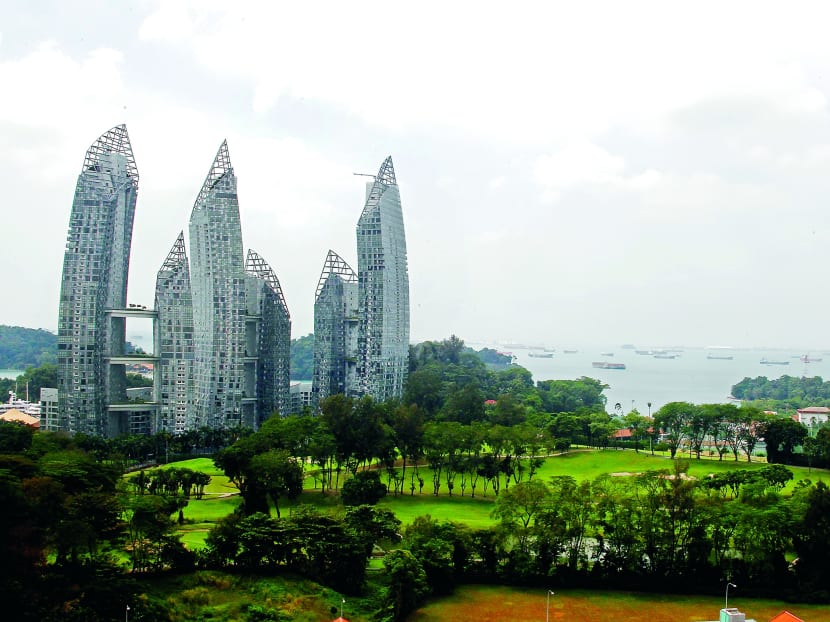Universal Design should be part of every design process: Liebeskind
SINGAPORE — Universal Design (UD) should be embodied in every design process and not seen as an afterthought, because architecture is universal and it should be for everyone, said world-renown architect Daniel Libeskind in an interview with TODAY.

Aerial view of Keppel Club with Reflections at Keppel Bay in the backgound. World-renown architect Daniel Libeskind designed Reflections. TODAY file photo
SINGAPORE — Universal Design (UD) should be embodied in every design process and not seen as an afterthought, because architecture is universal and it should be for everyone, said world-renown architect Daniel Libeskind in an interview with TODAY.
“Throughout the past, design was really for the elite. It wasn’t really democratic in the sense that it couldn’t incorporate everyone. We live in a different era where we see the open society as very important, and equality, giving a chance to everyone, whoever they are, whatever their needs are, should be addressed in a universal way, not as a special segregated case,” he said.
Mr Libeskind, who is Polish-born became an American citizen after he moved to New York. The 68-year-old was invited to be a keynote speaker at the launch of the inaugural Singapore Universal Design Week today (Nov 5).
With many of his buildings having received worldwide acclaim, Mr Libeskind has two residential projects here included in his portfolio — Reflections, which was awarded the highest UD Mark award last year, and the upcoming Corals, both at Keppel Bay.
Noting that not enough was being done to incorporate UD at the everyday level for even the most common spaces like bathrooms, he said: “Even streets and crossings and the way you use transportation systems, people have not thought deeply enough about how it affects for example an ageing population. So I think these are huge issues that have to be addressed from something very small like a door handle to something large like the whole design of a city.”
Universal Design also means having to go beyond meeting regulations or treating people as mere users of space, added Mr Libeskind. It requires putting oneself in the shoes of many different people.
“You have to reincarnate yourself into many different people because there are many different issues,” he said. “If you just meet regulations, if that’s all you’re doing in meeting the codes, that’s not enough because it’s catering to the minimum standard. The maximum standard is being able to inspire people of all categories to use the environment.”









